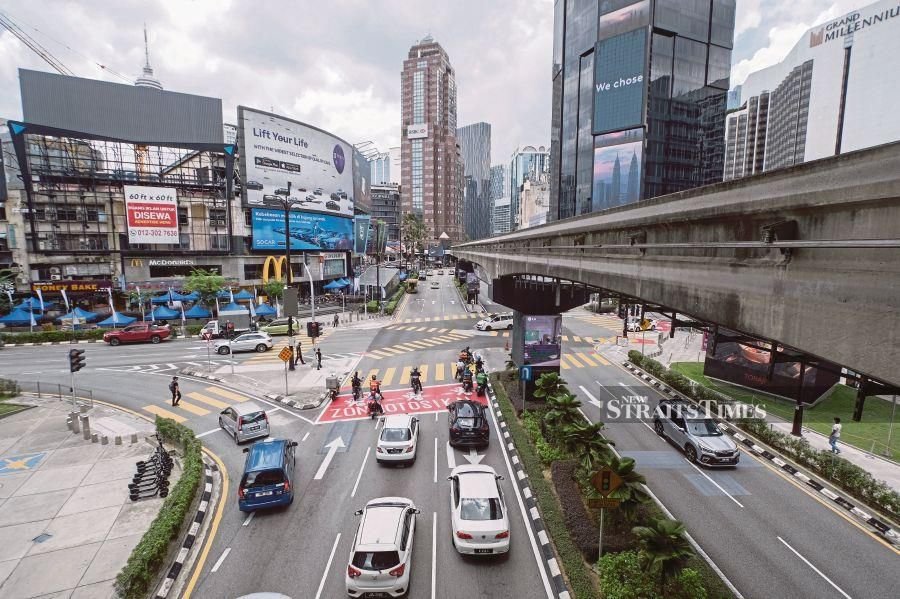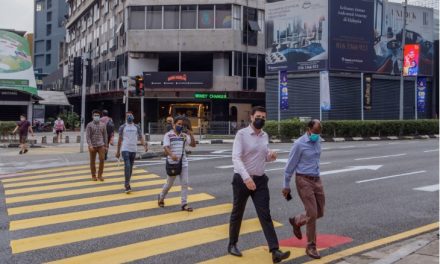KUALA LUMPUR | The National Chamber of Commerce and Industry of Malaysia (NCCIM) has expressed its disappointment over the 25 to 36 per cent hike in minimum wage to RM1,500, which will take effect from May 1.
NCCIM president Datuk Low Kian Chuan said many small and medium-sized enterprises (SMEs) would be affected by the new proposed minimum wage, with the exemption only be given to micro companies with less than five employees, informal sectors and those experiencing financial losses from Covid-19 pandemic.
“We get bits and pieces of news about the new minimum wage from the media.
“The Prime Minister (Datuk Seri Ismail Sabri Yaakob) and Human Resource Minister (Datuk Seri M Saravanan) have repeatedly promised to have engagement sessions with the business associations but to our disappointment, this announcement was made without any prior engagement and consultation with us.
“In past practices, there had been sufficient engagement and timeline for the implementation of minimum wage,” he said in a statement today.
Saravanan yesterday announced that several employment sectors, including the informal sector, will be given flexibility when the implementation of new minimum wage comes into effect on May 1.
The exemptions, he said, were given to those earning income by doing odd jobs, companies with fewer than five workers and businesses that are facing huge losses due to the pandemic such as hospitality and tourism sectors.
Low, who is also the president of the Associated Chinese Chambers of Commerce and Industry of Malaysia (ACCCIM), said the timing wasn’t right to implement a new minimum wage.
“Our deep concern is that a steep increase in minimum wage comes at a time when businesses are facing substantial increases in business costs, hike in electricity surcharge and also experiencing the worker shortages.
“Imposing additional labour cost on businesses could force the impacted business owners to raise prices of goods and services which can lead to consumer inflation and reduce employment to preserve their business margin.
“The knock-on effect of the proposed minimum wage on other categories of workers will add to higher employment and operating costs,” he said.
He added that most businesses are not financially stable to implement the proposed minimum wage as they are recovering from Covid-19 pandemic.
“The business community needs breathing space to rebuild their business as they are still reeling from the economic and business shocks inflicted by the two-year long pandemic impact, now worsened by the ongoing Russia-Ukraine conflict.
“Most businesses are not financially stable enough to implement the proposed new minimum wage as their cashflow and revenue are still on the mend and have not fully restored back to pre-pandemic levels,” he said.
Low said while NCCIM agreed that minimum wage needed to be reviewed every two years, it cannot accept the “steep hike” from between RM1,100 and RM1,200 to RM1,500 per month.
“NCCIM hopes the government will consider staggering the wage hike in a smaller quantum, between RM100 and RM150, instead of a steep rise of 25 to 36 per cent, in order to ease businesses’ financial burden during this challenging transition from pandemic to endemic phase.
“The risks of the country’s economic recovery remain tilted to the downside,” he said.
He added that NCCIM proposes a co-sharing of wage cost for SMEs through a 50 per cent wage subsidy of the new minimum wage if the government insists on implementing the new minimum wage.
“We look forward to engaging in a more in-depth discussion with the government and Human Resource Ministry on reaching an amicable approach to implement the new minimum wage without significantly disrupting the economic and business recovery track and more importantly, resulting in higher consumer inflation pressure.”








